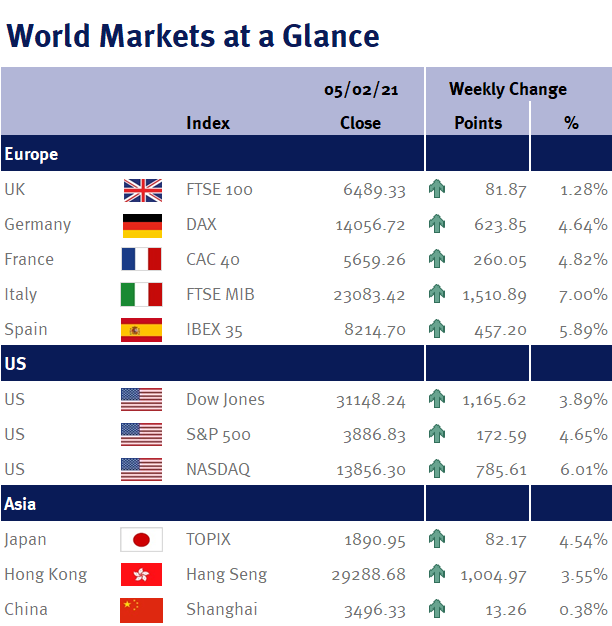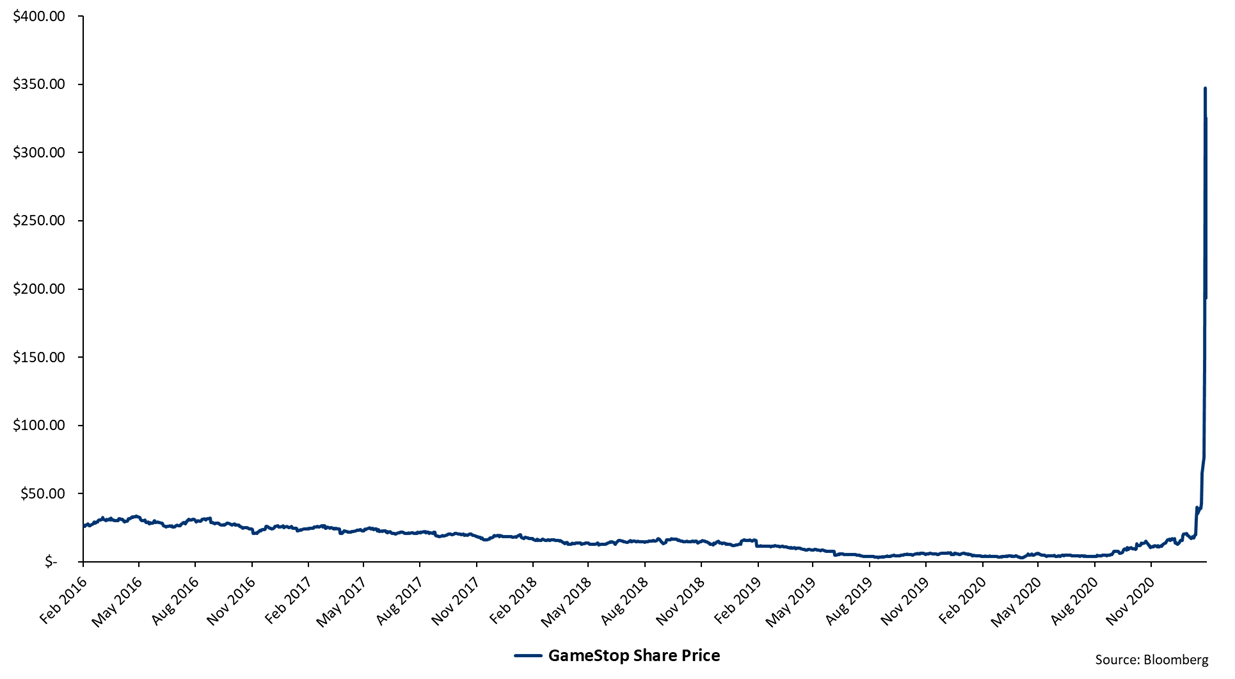For us, the main story of the week was the US Central bank’s monetary policy meeting.
This is because recent market chatter has increasingly been about when the Fed would begin to taper its QE program (bond purchases) and increase US interest rates given the economic recovery since those dark Q2 days last year.
Thankfully, not only did the Fed leave interest rates unchanged at 0.25% as we expected, but policymakers also made it clear it was too early to discuss any monetary tightening.
As we have previously highlighted in these commentaries, the US economy is a long way from the Fed’s inflation and employment targets – and due to stricter lockdowns, which closed pubs and restaurants, some of the recent economic data coming out of the US (such as December’s non-farm payrolls and retail sales) have shown signs that the recovery is starting to slow.
Furthermore, when it comes to stimulus, we believe size and duration matter: as the risk of going big and long with monetary stimulus is far less than being too small and short – and it was worth noting that after the 2008/9 global financial crisis, the Fed didn’t increase interest rates for 7 years!
Consequently, we believe all this market chatter about tighter monetary policy is completely premature as the Fed is very unlikely to start tapering its QE program in the next 12 months and even then, any tapering will be slow and gradual – and as for interest rates, we believe any increase is many years away.



